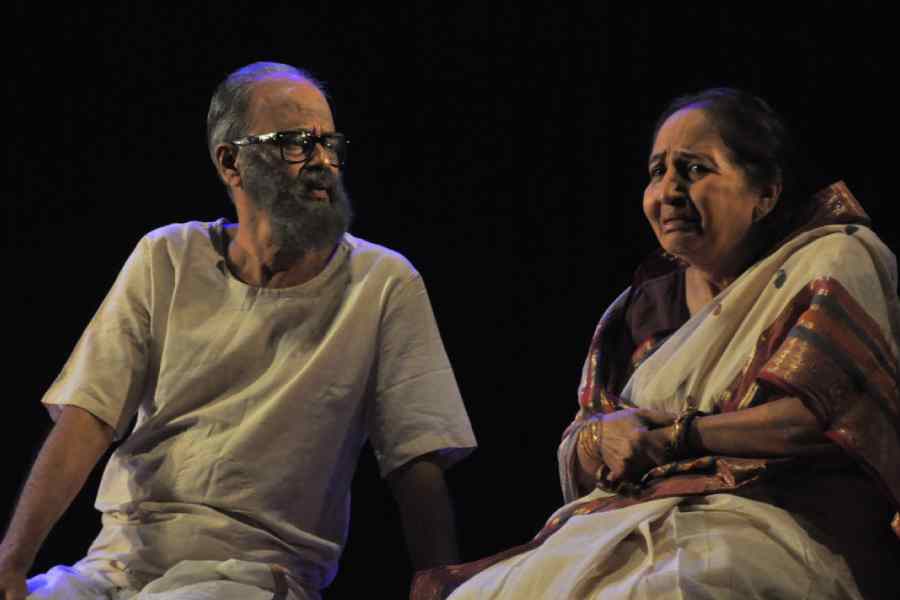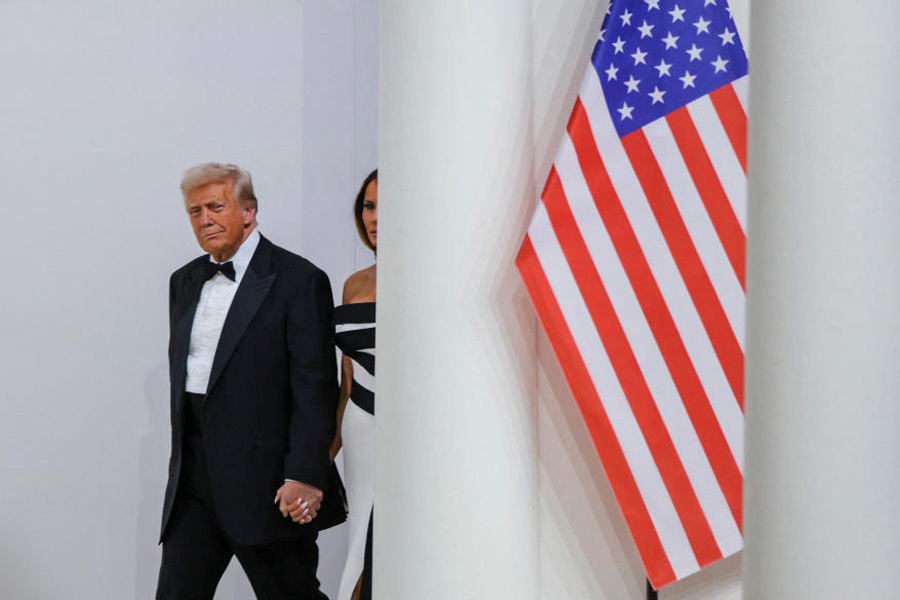Amidst the people’s movement sweeping across West Bengal, Teachers’ Day celebrations were muted like never before. But two recent Bengali productions recorded the evolution of school education in the state with an emphasis on student-teacher relationships.
Parabola Sir (picture) by Kolkata Playmakers focusses on the retired life of a mathematics teacher. Aptly named Satyaban Chakraborty (Subho Gupta Bhaya), here is a man who has lived by his principles and refused to stray in spite of pressures on the domestic front. He now survives frugally in Varanasi, teaching essential lessons of life to street children. Inspired by a Narayan Sanyal story, this Tirthankar Chanda play celebrates the sacrifices that teachers are known to make to emerge as examplars in the eyes of society.
Ram Mukhopadhyay, the director, knows how to play to the group’s strength. He sets up a drawing room drama that oscillates between Calcutta and Varanasi, underlining the centuries-old traffic of Bengal is between the two cities. Gupta Bhaya was a combination of stoicism and passion in the lead role. The veteran actress, Papri Basu, playing Sabitri, the wife, maintained a fine balance between the husband’s and son’s (Sekhar Sarkar) differences.
Chanda’s acumen for scripting dramas inspired by classroom situations was also on view in Apnake Bolchhi Sir, the latest from Belgharia Avimukh. Loosely based on Salil Biswas’s translation of Letter to a Teacher by the Schoolboys of Barbiana (1967) — itself a cult text that berates the tendency to subject school students to physical and verbal abuse — Chanda’s play holds a mirror to the state of school education in Weste Bengal just before the Sarva Shiksha Abhiyan took off. Episodic in structure, Apnake Bolchhi Sir is gruesomely true and gut-wrenching at times. Ashok Majumdar, the director, marshals a young ensemble cast to hit home a message of compassion. Jayanta Bandyopadhyay, who played the benevolent teacher offering an alternative system of education, gave a nuanced portrayal.











